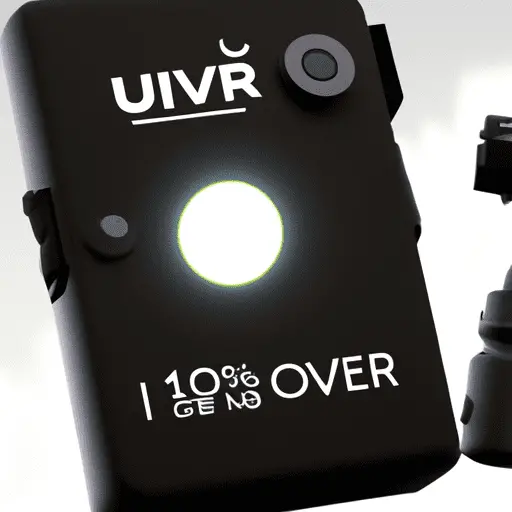-
Table of Contents
- A Comprehensive Guide to UVB Phototherapy
- Key Takeaways
- Introduction: Understanding UVB Phototherapy
- The Science Behind UVB Phototherapy
- Benefits of UVB Phototherapy
- Potential Side Effects and Risks
- Who is Suitable for UVB Phototherapy?
- FAQ Section
- 1. How long does a UVB Phototherapy session last?
- 2. How often should UVB Phototherapy be administered?
- 3. Can UVB Phototherapy be used in combination with other treatments?
- 4. Can UVB Phototherapy be used for children?
- 5. Can UVB Phototherapy cause skin cancer?
- Conclusion: The Power of Light in Skin Treatment
- Key Takeaways Revisited
A Comprehensive Guide to UVB Phototherapy

Key Takeaways
- UVB Phototherapy is a proven treatment for skin conditions like psoriasis, vitiligo, and eczema.
- The treatment involves exposure to ultraviolet light B (UVB), which slows the growth of affected skin cells.
- UVB Phototherapy can be administered at home or in a clinical setting, under the supervision of a healthcare professional.
- While UVB Phototherapy is generally safe, it may cause side effects such as redness, itching, and in rare cases, skin cancer.
- UVB Phototherapy is not suitable for everyone, and its effectiveness varies from person to person.
Introduction: Understanding UVB Phototherapy
UVB Phototherapy, also known as broadband UVB, is a type of treatment used to manage various skin conditions. It involves the use of ultraviolet light B (UVB), a component of natural sunlight, to slow the growth of affected skin cells. This article provides a comprehensive guide to UVB Phototherapy, discussing its uses, benefits, potential side effects, and more.
The Science Behind UVB Phototherapy
UVB Phototherapy works by exposing the skin to an artificial UVB light source for a set period. This exposure slows down the rapid growth of skin cells, helping to alleviate symptoms of skin conditions like psoriasis, vitiligo, and eczema. According to a study published in the Journal of the American Academy of Dermatology, UVB Phototherapy can clear psoriasis symptoms in about 70% of patients after 15 to 25 sessions.
Benefits of UVB Phototherapy
UVB Phototherapy offers several benefits. It can significantly improve skin conditions, enhance the patient’s quality of life, and is a viable alternative for those who cannot take systemic medications. Furthermore, it can be administered at home or in a clinical setting, making it a convenient treatment option.
Potential Side Effects and Risks
While UVB Phototherapy is generally safe, it may cause side effects such as redness, itching, and blistering. In rare cases, prolonged exposure to UVB light can increase the risk of skin cancer. Therefore, it is crucial to use this treatment under the supervision of a healthcare professional.
Who is Suitable for UVB Phototherapy?
UVB Phototherapy is not suitable for everyone. It is not recommended for individuals with a history of skin cancer, those with lupus, or those who are photosensitive. Additionally, its effectiveness varies from person to person, and it may not work for everyone.
FAQ Section
1. How long does a UVB Phototherapy session last?
A typical session lasts between a few seconds to several minutes, depending on the individual’s skin type and the severity of the condition.
2. How often should UVB Phototherapy be administered?
Most patients receive UVB Phototherapy two to three times a week. However, the frequency may vary based on the individual’s response to treatment.
3. Can UVB Phototherapy be used in combination with other treatments?
Yes, UVB Phototherapy can be used in combination with other treatments such as topical medications to enhance its effectiveness.
4. Can UVB Phototherapy be used for children?
Yes, UVB Phototherapy can be used for children under the supervision of a healthcare professional. However, the treatment parameters may need to be adjusted based on the child’s age and skin type.
5. Can UVB Phototherapy cause skin cancer?
While prolonged exposure to UVB light can increase the risk of skin cancer, the risk is relatively low when the treatment is administered correctly and under the supervision of a healthcare professional.
Conclusion: The Power of Light in Skin Treatment
UVB Phototherapy is a powerful treatment for various skin conditions, offering significant benefits and a high success rate. However, it is not suitable for everyone, and its potential side effects should be considered. As with any medical treatment, it is essential to consult with a healthcare professional before starting UVB Phototherapy.
Key Takeaways Revisited
- UVB Phototherapy is a proven treatment for skin conditions like psoriasis, vitiligo, and eczema.
- The treatment involves exposure to ultraviolet light B (UVB), which slows the growth of affected skin cells.
- UVB Phototherapy can be administered at home or in a clinical setting, under the supervision of a healthcare professional.
- While UVB Phototherapy is generally safe, it may cause side effects such as redness, itching, and in rare cases, skin cancer.
- UVB Phototherapy is not suitable for everyone, and its effectiveness varies from person to person.

